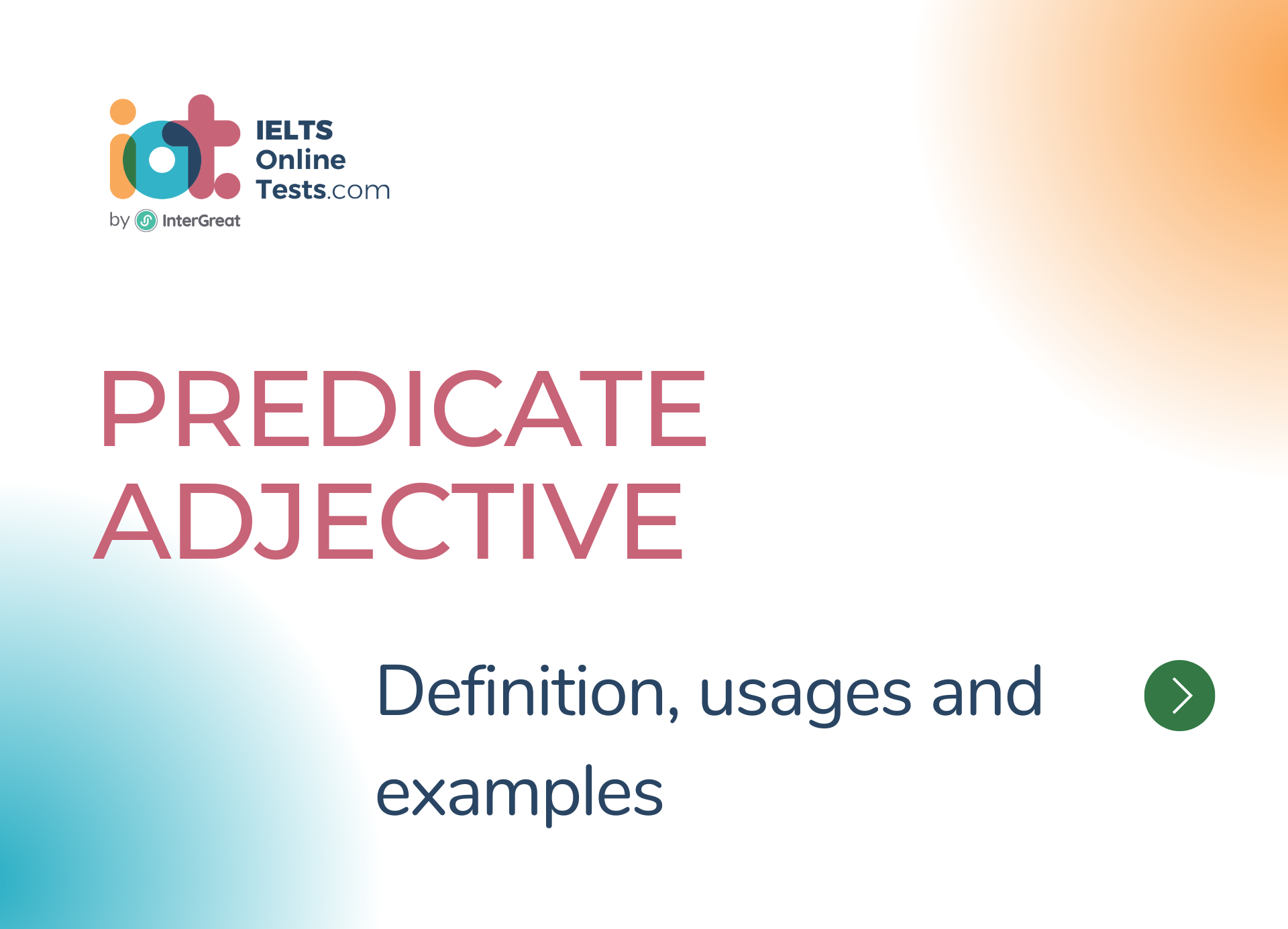
Predicate Adjective
Predicate adjectives, also known as predicative adjectives, are adjectives that come after a linking verb and modify the subject of a sentence. They provide additional information or description about the subject.
Here are some key points about predicate adjectives:
Placement: Predicate adjectives are placed after the linking verb in a sentence and modify the subject.
- Example:
- "She is happy,"
- "The flowers smell fragrant."
- Example:
Linking Verbs: Predicate adjectives are used with linking verbs, such as "be," "become," "seem," "appear," "feel," "look," "sound," "smell," or "taste."
- Example:
- "She looks tired,"
- "The cake tastes delicious."
- Example:
Description or Quality: Predicate adjectives provide additional information or describe the subject by expressing its state, condition, or quality.
- Example:
- "The movie was entertaining,"
- "He seems confident."
- Example:
No Agreement: Predicate adjectives do not change in form to agree with the subject. They remain the same regardless of the subject's number or gender.
- Example:
- "She is happy,"
- "They are happy."
- Example:
Adjective Modification: Predicate adjectives modify the subject and provide information about its attributes, qualities, or states.
- Example:
- "The weather is sunny,"
- "The child appears excited."
- Example:
Subject Complement: Predicate adjectives, along with other subject complements like predicate nouns or predicate pronouns, complete the meaning of a sentence by further describing or identifying the subject.
- Example:
- "He is a talented musician,"
- "She became a doctor."
- Example:
Predicate adjectives contribute to the overall meaning and description of a sentence by providing information about the subject's attributes, qualities, or states. By using predicate adjectives appropriately, you can enhance your sentences and provide a more vivid and accurate portrayal of the subject.




